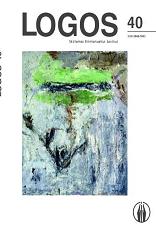BEGALINĖ VILTIES AKIMIRKA, ARBA APIE MIRTĮ LEVINO FILOSOFIJOJE
An Infinite Moment of Hope, or On Death in the Philosophy of Levinas
Author(s): Anna KamińskaSubject(s): Philosophy
Published by: Visuomeninė organizacija »LOGOS«
Keywords: Death; freedom; suffering; loneliness; good; time; other
Summary/Abstract: The life of a mortal being is a necessity of death, put off in time. But, in the view of Levinas, the human being's own time gives him a chance not only to put off death and deathly will, but also to overcome death. First I refer to Tolstoy, who influenced Levinas' interest in ethics, and present the characteristics of death in the philosophy of Levinas. Death is an experience beyond human freedom. The ultimate experience of the human will is suffering, impossibility of death, encirclement of Being. The human being is the subject of his own suffering, but is not able to be the subject of his own death - death annihilates the will and subjectivity of the human being. Confronted by death, one cannot be able and one cannot be; confronted by death, the human being ceases to be the subject. The human being cannot get to know death, but experiences death's approaching on himself - in suffering, in fear, in anxiety for himself. To the living subject, death is always the future; it is never "now", but comes from a different time from human time. Between the present of the human life and the future of death, there is an abyss: an infinite moment of hope. That time which is given to the human being, gives him a chance to overcome death, to immortalise himself in good done for other human beings, in his own offspring. By doing the good for the other, the human being goes beyond his own mortal being; being for the other, the human being ceases being towards death. Ultimately, the time of the human being does not fulfil itself towards death, but in eternity.
Journal: LOGOS - A Journal of Religion, Philosophy, Comparative Cultural Studies and Art
- Issue Year: 2005
- Issue No: 40
- Page Range: 91-95
- Page Count: 5
- Language: Lithuanian

